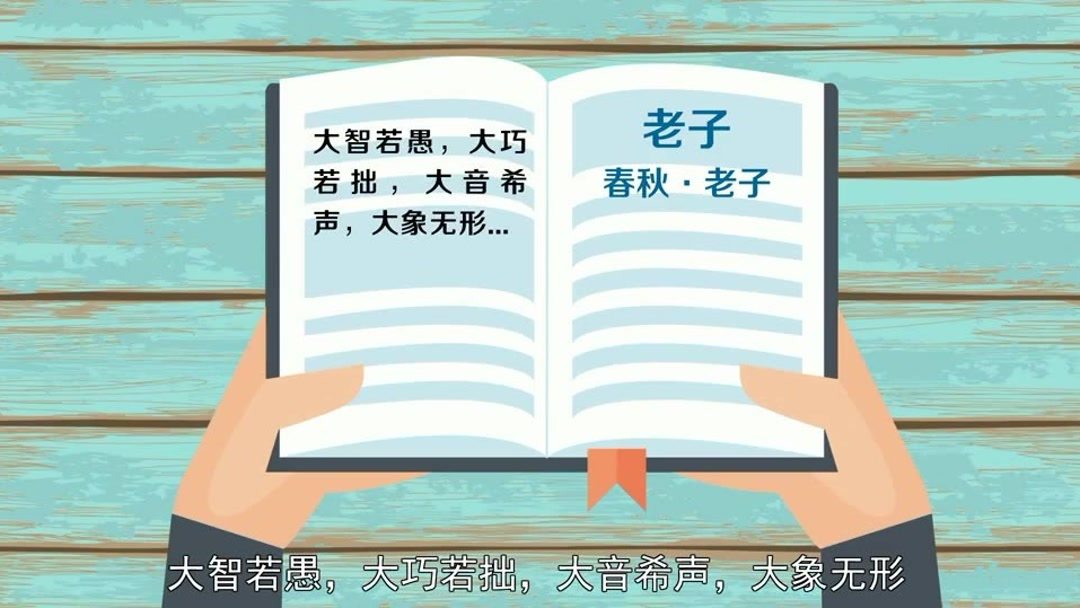本文目录:
How do foreigners view the treatment of traditional Chinese medicine?
最佳答案:
越来越多的老外对中医治疗持有认可和积极的态度。
# 关节炎
许多患有骨关节炎的老外表示,西医的一些治疗方法往往只能暂时缓解疼痛,无法从根本上解决问题。而中医通过针灸、推拿和中药调理等综合手段,能取得较好的效果。比如一位来自美国的患者,长期受膝关节关节炎困扰,关节疼痛、肿胀,上下楼梯困难。在接受中医治疗时,针灸师选取膝关节周围的穴位,如足三里、阳陵泉、阴陵泉等,通过针刺来疏通经络、调和气血。配合中药内服,以补肝肾、强筋骨、祛风湿为主要功效,常用的药材有杜仲、牛膝、桑寄生、独活等。经过一段时间的治疗,他的关节疼痛明显减轻,活动也更加自如。
# 肌肉劳损
对于因长期伏案工作或运动不当导致的肌肉劳损,中医的推拿按摩和拔罐疗法深受老外喜爱。一位来自澳大利亚的上班族,经常感到颈部和肩部肌肉紧张、酸痛,伴有头痛和手臂麻木。中医推拿师运用揉、滚、按、拿等手法,放松颈部和肩部的肌肉,缓解肌肉的紧张和痉挛。然后进行拔罐治疗,在背部和肩部的肌肉上选取合适的穴位,通过负压作用,使局部皮肤充血或瘀血,达到通经活络、消肿止痛的效果。经过几次治疗后,他的肌肉疼痛得到了很大缓解,头痛和手臂麻木的症状也有所减轻。
# 失眠
不少老外饱受失眠的困扰,西医通常会使用一些镇静催眠药物,但可能会有依赖性和副作用。中医治疗失眠则从整体出发,辨证论治。例如一位来自英国的患者,入睡困难,多梦易醒,伴有心烦、焦虑、头晕耳鸣等症状。中医辨证为心肾不交,给予中药方剂交泰丸加减,主要药材有黄连、肉桂、酸枣仁、柏子仁、远志等。黄连清心火,肉桂温肾阳,引火归元,使心肾相交;酸枣仁、柏子仁养心安神;远志交通心肾。配合耳穴压豆,在耳朵上选取心、肾、神门等穴位,用王不留行籽按压,通过刺激耳部穴位来调节脏腑功能,改善睡眠。经过一段时间的治疗,患者的睡眠质量得到了明显提高。
# 过敏性疾病
过敏性鼻炎、哮喘等过敏性疾病在老外中也较为常见。中医认为这类疾病与...的正气不足、肺脾肾三脏功能失调有关。一位来自加拿大的过敏性鼻炎患者,每到春秋季节,就会出现鼻痒、打喷嚏、流清涕等症状,严重影响生活质量。中医采用中药调理和艾灸治疗。中药以益气固表、健脾补肾为原则,常用的方剂有玉屏风散合肾气丸加减,药材包括黄芪、白术、防风、熟地、山药、山茱萸、附子等。艾灸则选取足三里、关元、气海等穴位,通过温热刺激来激发...的阳气,增强免疫力。经过几个疗程的治疗,患者的过敏症状明显减轻,发作次数也减少了。
刮痧优秀观后感英文版
第一篇:刮痧影评英文版Last year,when I have the public elective course,our teacher introduces a film to us which is his favorite one--GuaSha.At that time,I was just angry at foreigner’s ignorance and deeply moved for Datong’s love for his son.At this time,I watch this film again from different point of view--the intercultural communication.
Cultural differences are the most important point in the intercultural communication.At the beginning of this film,Datong with his family is attending his own victory banquet,his son Dennis hits his friend Paul,Paul’s parents think that’s ok,it’s just a fight between two kids.However,Datong and his wife Jenny have different reactions towards that situation.Jenny is a woman who is deeply affected by western thoughts,she doesn’t blame his son.At first,Datong asks his son to apologize to his friend Paul,but Dennis refuses to do that.So Datong is very angry because he thinks that he makes his friend loses his face.Hence,Datong strikes Dennis in his face.Everyone including his wife are shocked.The western parents regard it as family violence,while Datong as a traditional Chinese parent thinks that beating is a sign of affection and cursing is a sign of love.What he has done is to teach his son to show respect to other people.From there,we can see the cultural differences between western parents and Chinese parents in treating their children.
From my perspective,I think Datong is a contradiction.He grows up
in China,but immigrates to western country later.So Datong is familiar with Chinese culture,meanwhile he is affected by western culture.He usually treats his son by traditional Chinese ways,but sometime he treats his son like a foreigner parent.For example,he can share secrets with his son and respect his opinions.So,that is why I say Datong is a contradiction.
The highlight of this film is about the debate on the hearing and
that is the most obvious part of cultural differences in the intercultural communication.The defense lawyer of Child Welfare Agency has the evidence to charge him of abusing his son,they find a nurse who is responsible for Jenny’s parturition.She says that Datong choose to save his wife not the child when Jenny is in danger during parturition,and he even doesn’t give the child chance to live.however,Datong holds different opinion about that.He argues that if his wife live,they can always have more kids,just as a Chinese famous saying goes where there's life there's hope.So we can know the different concept between Chinese people and foreigners.In this film,there are two big misunderstandings about Chinese culture.One is about Journey to the West and another one is about Guasha.The defense lawyer says that Sun Wukong is representative of violence,while the truth is Sun Wukong is a good and honest hero and represents our traditional values and ethics.Another misunderstanding is
about Guasha.Guasha is a traditional Chinese medicine cure without medical evidence.However s it has become the direct evidence of abusing child.The conflicts in this film is the conflicts between two totally different cultures.And it deserves us to ponder over.
From this film,we should know that if we want to get knowledge of intercultural communication,the first step is to understand cultural differences.
第二篇:刮痧影评英文版
Actually, in the beginning ,I do not reckon GuaSha worth a written comment just according to the literal meaning I’ve got. But my views on this movie have been dramatically changed after I finishing it. In this passage, I will organize my comments in three parts:
1. the summary of this movie.
2. the differences between Chinese and English culture reflected in this movie.
3. Conclusion.
Section1: GuaSha shapes a vivid image of a man whose name is DaTongxu. He is a man with a beautiful and virtuous wife .What’s more ,he has a happy family. However, everything has changed since an unexpected lawsuit came to him which is triggered by the Chinese traditional medical treatment---GuaSha, which leads to the separation between DaTong and his wife as well as his family. The plot then is expanded from this word…
Section2: There are so many differences in two cultures reflected in this movie. Firstly, the way people think or treat about some rituals. For example ,during the party, DaTong insists that he hits his son out of the respect for John, while John considers it a rude behaviour towards Danis.And to some extent, DaTong breaches the law. Secondly, from the way they have dinner ,we can see their living styles are different from
ours. They use forks and knives ,but we use chopsticks. Then, in western countries, everything is judged according to proof. When they handle something, they prefer to appeal to the law while Chinese are inclined to tackle these difficulties with their own efforts. Next, for love , DaTong is advised to tell the truth that it is his father who does GuaSha treatment to Danis. But DaTong just keeps silent. Chinese emphasize filial affection towards the senior. In contrast ,westerners just want to seek the truth. At last, the cognition of genuine medical treatment is of difference. Traditional Chinese medical treatment is assumed to be fake treatment in western countries.
(Here are some extracts from the movie:
1. It’s not a right thing to hit a child. Sometimes it may break the law.
2. To hit somebody means to love somebody.
3. In China ,we use chopsticks, but here you use forks.
4. It is illegal for parents to leave their children at home alone.
5. GuaSha is a traditional Chinese medical treatment.
6. There isn’t any written proof can prove GuaSha is a real treatment.
7. Husband doesn’t care about his son if he is absent when his son is born.
8. To keep the mother alive is more important than the son’s life.
9. Hit his own son to show the respect for his boss.
10. It’s necessary to tell the truth.
11. Because he is a Chinese, he should be filial.
12. Better early than late if you will take the plane. )
Conclusion:
In this movie ,what strikes me most is the love that DaTong has towards his son and his father. Absolutely, DaTong is a tough and filial man. In order to get his son back, he ignores any punishments from the law… Apparently, if there is any difference still existing among different cultures, the possibility of melting people’s attitudes together is somewhat of difficulty. Maybe, colliding with other cultures is just the appropriate way for cultures to assimilate into each other.
高分求翻译。。。。。。。
美国人是理性主义,美国的家庭教育推崇以理性的基本原则对待家庭成员和家庭事务。美国父母多是把抚养教育孩子的义务,与对社会应尽的义务一样看待,这是超越个人的立场,而不是完全从家庭本身或父母自身的利益来看待家庭教育。既然他们认为抚育子女是义务,也就不图养儿防老,不图回报,自己老了进养老院是一个人应有的归宿(这些中国人视为不道德的做法源于美国的社会保障机制和文化习惯)。Americans are rational, and family education in the United States respected the basic principles of a rational treatment of family members and family affairs. American parents is to raise and educate children's obligations, and obligations to society as well, which is beyond the individual's position, but not completely from the family or parents of their own interests to look at family education. Since they think that bringing up children is compulsory, also not raise children to provide against old age, the map does not return, into their old homes is a destination should be ( of course, the Chinese people as unethical practices from the American social security mechanisms and cultural habits ).
中国人是情意至上,我国的家庭教育以人伦为基础,以情感情理为法则,来处理家庭人际关系。我国父母把孩子看作是自己的私有财产,从个人养老或个人荣誉面子角度考虑子女教育,在无微不至的父母爱怜中隐含着较为浓厚的“投桃报李”的私情。由此说来,就不难理解为什么中国父母“望子成龙”、“盼女成凤”的心情远胜于美国,往往把家庭教育目的功利化。
Chinese are feelings first, family education in China with human as the foundation, to emotional reason for the law, to deal with the interpersonal relationship in the family. Our parents send their children as their own private property, from individual endowment or personal honor face angle consideration of children's education, in the meticulous parents love implies relatively grumous" return present for present" affair. This is to say, it is not difficult to understand why Chinese parents" hopeful"," looking for female chicken" mood than the United States, often utilitarian purpose of family education.
电影中在思维方式上的差异还体现在待人处世方面。中国人讲究的是“以和为贵”,所受的教育通常是避免直接冲突、公开批评和具有争议的话题。他们希望在周围的人中保持和谐,给别人留“面子”。相反,美国人通常愿意直接面对问题、提出批评、讨论具有争议的问题,并坚持自己认为是“事实”的意见。他们对“面子”并不在意。所以在电影中我们看到,在Dennis(许大同的儿字)打了他的上司昆兰的儿子后,许大同为了给他的老板一个面子,也给自己一个台阶下,就动手打了他的儿子,这在我们看来是再正常不过的事儿了,可人家老美并不理解甚至认为许大同的这种做法是在做伤害孩子的事。
In the film the thinking mode difference is also reflected in the hospitality field. Chinese is about" harmony", education is usually avoid direct conflict, public criticism and controversial topic. They hope that the people around to maintain harmony, leave them."". Instead, Americans usually willing to directly face the problem, criticism, discuss controversial issues, and insisted that he considered" fact" comments. They do not care for" face". So in the film we saw, in Dennis ( Xu Datong son word ) made his boss Quinlan's son, Xu Datong in order to give his boss a face, also give yourself a step down, hit his son, which in our opinion is very normal thing, he did not understand the old beauty even think that Xu Datong this practice is doing harm to children.
差异来自于方方面面,包括在医疗方法上。这也是影片一部部往下发展的主线。中医和西医存在着根本的差别。中医是理论主要建立在阴阳五行说,藏象学说,经络学说,辨证论治,四诊八法等等!!在中医当中,...是一个整体,和世界万物合而为一,通常都是通过全身治疗来治疗某一部位的疾病!他的发展主要取决于前人的总结!
The difference from all aspects, including in the medical method. This film is also a ministry to the main line of development. Traditional Chinese medicine and Western medicine there is a fundamental difference. Chinese traditional medicine is a theory on the five elements of yin and Yang, Zang Xiang theory, meridian theory, syndrome differentiation and treatment, four eight law and so on!! in Chinese medicine, the human body as a whole, and all things in the world be made one, usually through systemic therapy to treat a site of disease! His development mainly depends on the previous summary!
西医的发展主要是化学的发展,他把...当成一台复杂的机器,通过调节...的机能平衡,头痛医头,脚痛医脚.他的发展主要依赖于药物化学的发展和科学的进步。
Western development is the main chemical development, he put the human body as a complex machine, by adjusting the function of human body balance, no overall plan for a fundamental transformation. His development mainly relies on the development of medicinal chemistry and scientific progress.
很多外国人不能明白中医所体现的博大精深的内涵,所以并不承认,以至于影片中造成了对于孩子身上留下的“伤痕”的极大误解,差点拆散了原本美满和谐的一家人。
Many foreigners cannot understand Chinese medicine embodies the broad and profound connotation, so does not admit, that the film created for children left behind " Scar" the great misunderstanding, almost split up once happy and harmonious one family.
刮痧在我们中国人看来是对于治疗养生的极好的方式在老美眼里就是虐待儿童,这罪也定的太冤枉,太荒唐了吧。所以这也是影片中一个极大的文化反差。
Scraping in our Chinese people is a great way to treatment regimen in American eyes is child abuse, this crime is set too hard, too absurd. So this is also one of the film's great cultural contrast.











